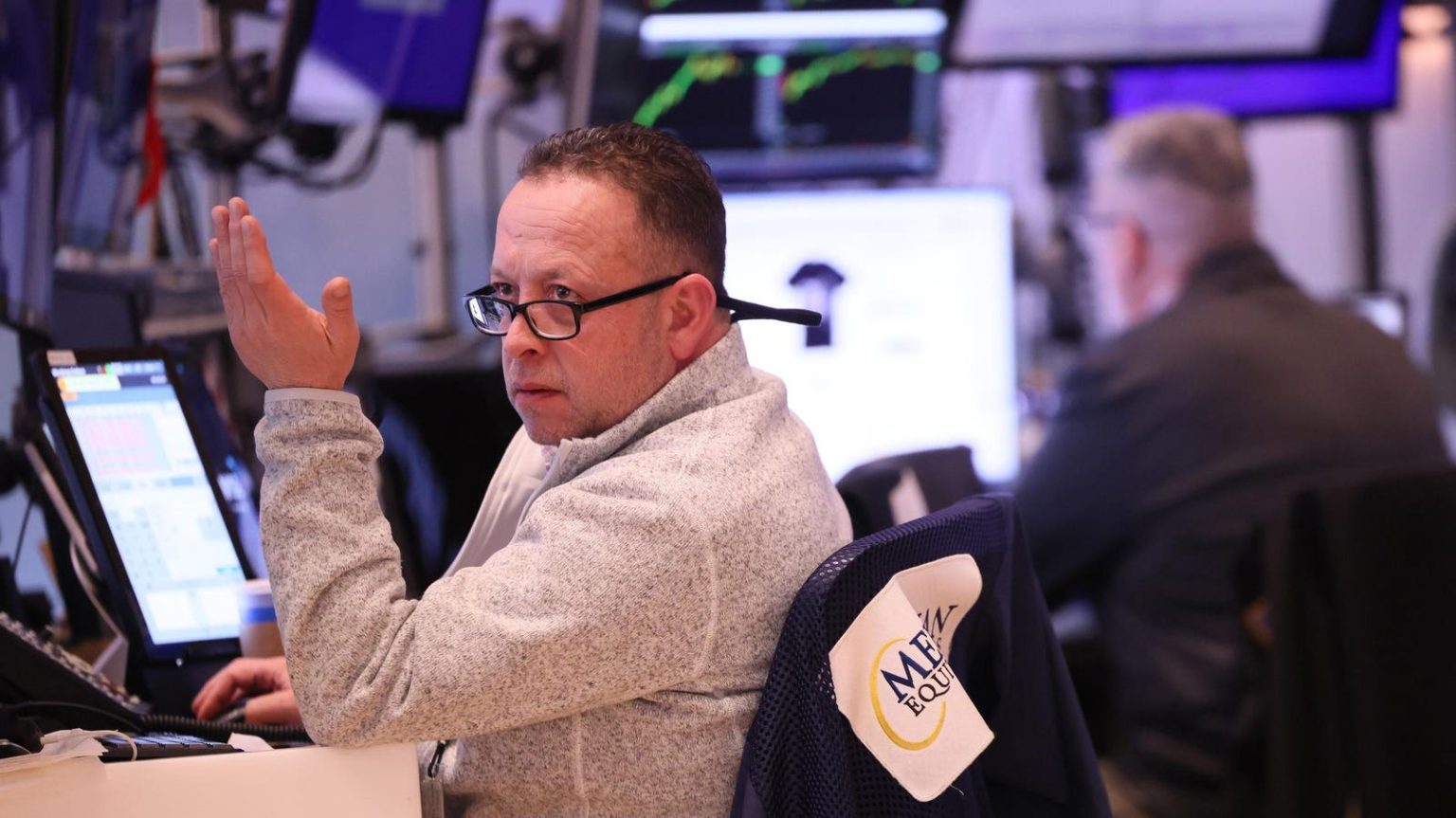The stock market experienced a turbulent day on Thursday, with the Dow Jones Industrial Average suffering its biggest decline in over a year, dropping 1.5% or 605 points. This was the largest point loss for the index since February 21, 2023, and it closed at its lowest level since May 8. All 30 of the blue-chip American companies listed on the Dow experienced declines, with major tech giants like Intel, Apple, and Amazon among the biggest losers, with their shares dropping 4%, 2%, and 1% respectively.
While the Dow struggled, the losses for the S&P 500 and Nasdaq Composite were less severe, with the S&P sliding 0.7% and the Nasdaq dipping 0.4%. One stock that helped cushion the losses for these indexes was Nvidia, a semiconductor chip designer whose stock surged by 9% following exceptional quarterly earnings. Nvidia’s market capitalization soared by over $220 billion on Thursday, making it the second-largest daily valuation gain in history, only behind the $277 billion increase the company saw after its February earnings report.
The surge in Nvidia’s stock price on Thursday highlights the zero-sum nature of financial markets. Investors who were eager to buy Nvidia shares needed to sell off other holdings to raise the necessary funds. This was evident in the performance of other major technology stocks, including Alphabet, Amazon, Apple, Meta, Microsoft, and Tesla, all of which saw their shares decline by 0.4% or more, resulting in a combined loss of $168 billion in market value. This amount was close to the $220 billion gained by Nvidia.
In addition to portfolio reallocation, concerns about monetary policy also weighed on equities. The Federal Reserve expressed disappointment over the lack of progress in controlling inflation, leading to speculations that interest rates would remain higher than previously anticipated. Futures trading indicated expectations of only a 25-basis-point interest rate cut this year, a significant shift from the 150 basis points projected at the beginning of the year. Higher interest rates can weaken stock valuations as they increase interest expenses, which can impact company profits, especially since many firms rely on debt for operations.
Despite the recent market volatility, stocks have performed well this year, with the Dow up 4%, the S&P up 10%, and the Nasdaq up 11%, excluding dividends. All three indexes are within 2% of their all-time highs reached earlier in the month. The strong performance of stocks so far this year has partially been attributed to optimism surrounding economic recovery post-pandemic, along with robust corporate earnings. However, ongoing concerns about inflation, interest rates, and monetary policy could continue to influence market trends in the near term.
Keep Reading
Subscribe to Updates
Get the latest creative news from FooBar about art, design and business.
© 2025 Globe Timeline. All Rights Reserved.













